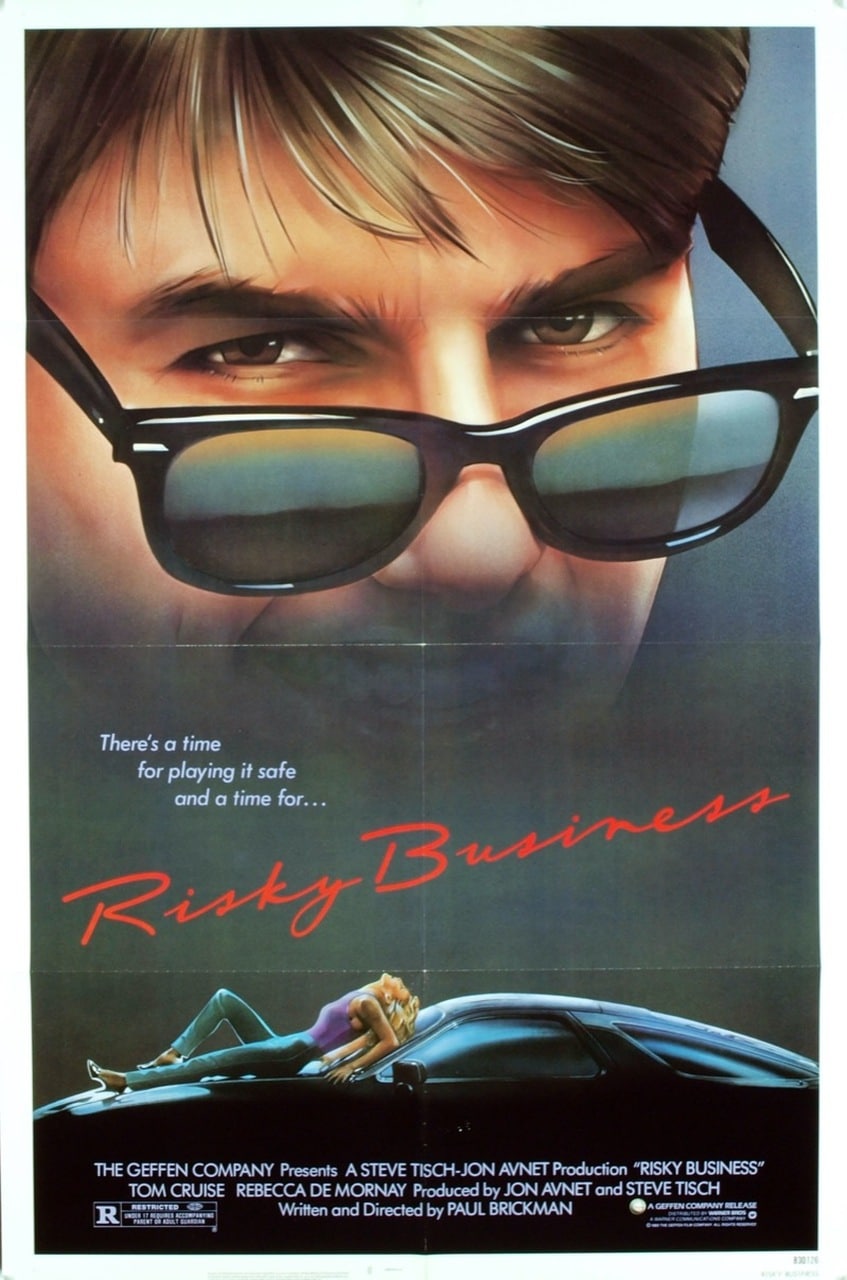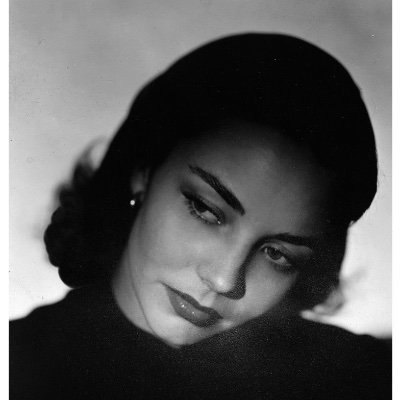
- Starring
- Tom Cruise, Rebecca De Mornay, Joe Pantoliano
- Writer
- Paul Brickman
- Director
- Paul Brickman
- Rating
- 18A (Canada), R (United States)
- Running Time
- 99 minutes
Overall Score
Rating Summary
As with most films about prostitutes, Risky Business is more interested in finances than sex. The protagonist, Joel Goodsen (Cruise), is an upper class high school student who aspires to attend Princeton University and lose his virginity as soon as possible. There is an obvious link between his social position, his ability to earn money and the women who are sexually available to him. All of these implications would usually be left to hang there, without being explicitly acknowledged, in most Hollywood blockbusters from this period. The film is unique in that it directly engages with these ideas and leaves audience members to do most of the work when it comes to deciding whether or not they condemn a system that encourages people to use money in order to control others.
Goodsen is presenting as a future yuppie, who dreams of living a life in which he isn’t threatened by the power that sexy women hold over him. At first, he is seen as a somewhat innocent boy who has dreams about sleeping with a babysitter. He is a nervous virgin who wishes that he weren’t so inexperienced, but the script smartly refuses to present him as a completely wholesome, chaste young man. From the beginning, he is motivated by a desire for power over others and complete control over his own life. He already has the desires of a Donald Trump type and the only thing that has been stopping him from hiring prostitutes and throwing wild house parties, is a lack of resources and the presence of his parents. He already represents the worst of Capitalism, and his real evolution as a character involves his perspective on women and the role that they will play in his life.
In some descriptions of Risky Business, Lana (de Mornay), the prostitute that Goodsen ends up hiring, is described as a hooker with a heart of gold. This description seems to miss the point, as Lana is far more complex than Julia Roberts in Pretty Woman. Yes, she is seen through Goodsen’s eyes, but the film is critical of the view that he has of women, rather than endorsing the way that he puts Lana on a pedestal. He wants Lana because she initially appears to be highly knowledgeable about sex and independent in a way that Goodsen will never be.
The sex scenes seem to be deliberately artificial. There is something inherently silly about the visual of Lana’s bottom being pushed into Goodsen’s crotch as they are hit with a gust of wind. It’s the sort of scenario that a teenager might fantasize about, but when it is actually visualized, it appears fake and uncomfortable. This reminds us that Lana is a fantasy girl for Goodsen and he has idealized her in every possible way. It takes him a long time to understand that she is essentially just a teenager, who will never have the opportunities that he has. She might be able to charge him to have sex with her but she is under the thumb of a pimp and has to do what her clients tell her to do. He can use her for a couple of nights, and then go on to attend a prestigious university and earn a high-paying job. She will remain in the same position until she gets too old to command high fees, and her employers will always control her.
Risky Business sees Goodsen go from idolizing sexually attractive women and treating them like an untouchable alien species to seeing them as possessions that can be bought to perform a certain function, before being discarded when they wear out their welcome. His capacity to fully enjoy the company of women is severely depleted and he becomes somebody who sees romantic and sexual relationships as purely transactional. It is a tragedy of sorts, and yet it plays out with a grim sense of inevitability. Goodsen and Lana are both selfish and immoral and they live in a society that encourages their self-serving behavior.
Risky Business is deeply rooted in the era in which it was made which actually benefits it. One can’t imagine this film being made in any other era. The Tangerine Dream score, tight jeans and mood lighting all felt so quintessentially 1980s, and all of these touches have the effect of immediately immersing you in the setting. I believed in the version of suburban Chicago on screen and all of the locations were just as tacky as you would expect them to be. Cruise is another emblem of the decade who is surprisingly well deployed. His smarmy grin and air of entitlement give us a hint at the darkness that lurks inside his mind. So many of his vehicles revolved around the idea that his character was the most accomplished, likeable human being on earth, and it was up to the people around him to learn how to properly appreciate his brilliance. Goodsen has the outlook of Pete “Maverick” Mitchell but Cruise is slimier than ever and becomes thoroughly repugnant as he sinks further and further into depravity.
One wishes that other teen movies were this ambitious. Risky Business is a flawed piece of work but it is far more appealing than an empty sex comedy that prizes ass shots over sophisticated characterization or social commentary. Adolescents are so used to being talked down to by the entertainment that is supposedly made to appeal to them, so they end up seeking out content made for people who are ten or twenty years older than them. If only they had more intellectually challenging films available to them.
If Brickman made a comeback and directed a film about how empty and soulless modern teenagers are, it would certainly be a breath of fresh air. We need to find some way to fight back against Under the Riccione Sun.
still courtesy of Warner Bros. Pictures
Follow me on Twitter.
If you liked this, please read our other reviews here and don’t forget to follow us on Twitter or Instagram or like us on Facebook.

I am passionate about screwball comedies from the 1930s and certain actresses from the Golden Age of Hollywood. I’ll aim to review new Netflix releases and write features, so expect a lot of romantic comedies and cult favourites.
Discover more from
Subscribe to get the latest posts sent to your email.
